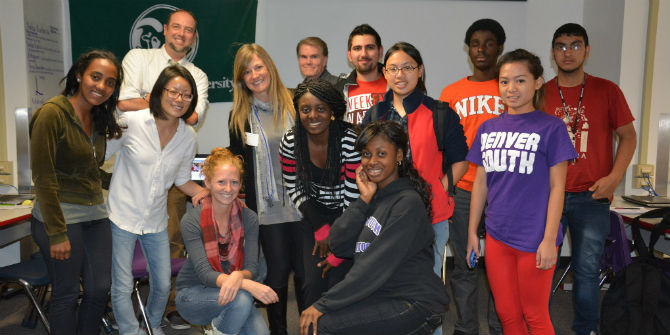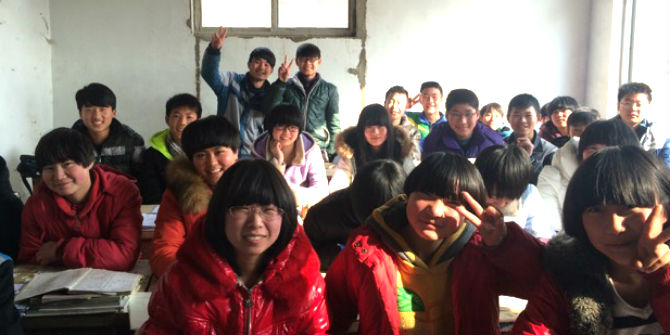 Parents can become overwhelmed by the rapid changes in information and communication technologies (ICT) and contradictory advice on how best to support their children’s safe and beneficial internet use. Why is that? When many of today’s parents were children themselves, most of today’s technologies did not even exist. So, parents may lack key references and best-practice examples from their own childhood that show what good digital mediation, guidance and support for children could look like. For www.parenting.digital, Olaf Kapella discusses how research evidence can close this information gap and support parents and carers in their decisions. Drawing on two recent reviews conducted as part of the EU Project DigiGen, he offers insights for parents on how to maximise the positive aspects of internet use by focusing on online activities (rather than screen time), co-using technologies with their children, respecting children’s privacy, promoting resilience and acting as role models.
Parents can become overwhelmed by the rapid changes in information and communication technologies (ICT) and contradictory advice on how best to support their children’s safe and beneficial internet use. Why is that? When many of today’s parents were children themselves, most of today’s technologies did not even exist. So, parents may lack key references and best-practice examples from their own childhood that show what good digital mediation, guidance and support for children could look like. For www.parenting.digital, Olaf Kapella discusses how research evidence can close this information gap and support parents and carers in their decisions. Drawing on two recent reviews conducted as part of the EU Project DigiGen, he offers insights for parents on how to maximise the positive aspects of internet use by focusing on online activities (rather than screen time), co-using technologies with their children, respecting children’s privacy, promoting resilience and acting as role models.
Screen time vs. screen activity
When trying to mediate children’s internet use, parents sometimes limit the amount of screen time, which not only might create conflicts but is also not the best approach. Recent research indicates that time spent online is less important for children’s well-being and health than the online activities they engage in. For example, the passive use of social media can have adverse effects, while active communication on social networks is related to more positive outcomes. In addition, parental mediation related to screen time and online activities should reflect children’s age and digital competence:
- Children are more likely to benefit from longer online engagement when they are older and more competent than when they are very young.
- Establishing routines about device and internet use is more helpful than having flexible or ad hoc rules which can be harder to explain to children.
- Understanding the rules can help children to follow them as research shows that children accept rules more when they are explained to them.
Joint media engagement
One aspect of parental mediation that brings along many advantages is the co-use of digital technologies. By playing online games together or watching the child’s favourite TV show, YouTube channel or TikTok, parents can review the content and can discuss issues that arise. Besides, doing something together as a family forms a collective experience and can facilitate communication beyond the seen content.
- Children appreciate that parents are interested in their favourite media and enjoy being the knowledgeable party.
- By using ICT together parents can support their children in gaining better skills, taking advantage of a wider range of online opportunities, and learning how to use technologies safely. It can also create a supportive and trusting environment so that children feel that they can approach their parents when they need help.
Show interest but respect the child’s privacy
Children and young people want their parents to understand their views and what the digital world means to them. They would appreciate it if parents focus not only on the negative aspects of digital technologies but also discuss the positive aspects of ICTs and how digital technologies can benefit children. At the same time, it is important that parents respect children’s privacy and don’t become over-invasive in their online activities. Parental supervision is always a balancing act of protecting the child without undermining their independence and individual development. Overprotective and controlling parental mediation denies children their right to privacy and prevents them from opportunities to develop into autonomous and responsible individuals.
- Children could experience some parental involvement as violating their privacy, for example, if parents comment on the child’s social media profile or monitor their browsing history.
- Many children do not want their parents to send or post photos of them without permission. This can be particularly frustrating if the shared pictures are perceived as embarrassing.
Promoting resilience instead of total risk shielding
ICTs offer a lot of unique opportunities for creating and maintaining relationships, exploring identities and developing a sense of self, or acquiring a range of useful skills. These positive and helpful aspects, however, go hand in hand with the possibility of experiencing harmful or inappropriate content, contact, or conduct. If children are completely shielded from the digital world they would be less likely to experience harm online but simultaneously they would be deprived of all digital opportunities.
- Instead of banning children from being online, parents should talk to their children about the possible online risks, advise them on how to minimise risky situations and support them to deal with harmful experiences. This helps children build resilience and reduces the negative effects on their wellbeing.
- Children need support from parents and educators to develop competencies needed to safely navigate in the digital world and encouragement to seek help when they face a difficult situation.
Parents are role models for their children
Children mirror their parents’ ICT practices and adapt their behaviour depending on how parents use digital technologies. Scholars who studied adults’ technology behaviour while taking care of children found that technology distraction can lead to reduced parental attention and changes in the carer-child interaction. In some cases, this might lead to missed out opportunities to foster the child’s development of a healthy relationship with technology. If parents spend a lot of time on their smartphone children also start to question the rules they need to follow and they are disappointed if this behaviour leads to less family time.
The existing evidence suggests that the ways families engage with digital technologies are complex, and so are their consequences. ICTs offer unique opportunities for families and their diverse individual members, but children – and also adults – face online risks and challenges. Adequate parental mediation and essential digital competencies can help to mitigate the adverse effects of children’s and young people’s online activities on their health and wellbeing. Hence, whether the overall impact on family life is positive or negative highly depends on the combination of digital behaviours families implement in their daily lives. In addition to families, society – including its multiple institutions – is also essential for promoting digital competence and strengthening children’s resilience.
For more detailed findings from the evidence reviews see also Children’s ICT use and its impact on family life (by Theresa Lorenz & Olaf Kapella) and ICT use across Europe – a literature review and an overview of existing data (by Sara Ayllón and colleagues).
First published at www.parenting.digital, this post gives the views of the authors and does not represent the position of the LSE Parenting for a Digital Future blog, nor of the London School of Economics and Political Science.
You are free to republish the text of this article under Creative Commons licence crediting www.parenting.digital and the author of the piece. Please note that images are not included in this blanket licence.
Image credits: in-text images by Christer Hyggen, DigiGen; featured image Tima Miroshnichenko on Pexels







